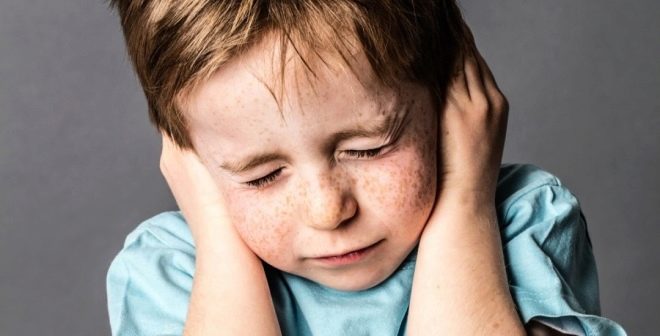Psychosomatic causes of nausea in children and adults
Nausea in children and adults does not always occur as a symptom in food poisoning or some kind of disease. All parents know that sometimes children are sick almost without cause, for example, before some important event, when there is excitement or during a trip by car.
In this article we will talk about the psychosomatic causes of nausea.
General information
Nausea is a symptom that is associated with the occurrence of an unpleasant feeling in the epigastric region, in the pharynx, in the mouth. It can be sluggish, and can lead to the development of the urge to vomit and to vomiting itself.
If nausea occurs rarely, then it is called spontaneous. If a child or an adult has this unpleasant feeling from time to time, they talk about periodic nausea.
If a symptom is observed regularly, in medicine it is called persistent nausea. It is manifested by weakness, dizziness, rapid breathing, and urge to vomit. Sometimes blood pressure decreases, sweating increases, the skin becomes pale, the eyes darken, a feeling of chills may appear.
In itself, nausea is a consequence of the work of the central nervous system, in which the emetic center in the brain is abnormally activated. This may be a natural symptom of diseases of the stomach or intestines, poisoning. But at the same time nausea will be far from the only symptom. If there are no other symptoms, there is only nausea, then you should think about the so-called psychosomatic symptom, or, as doctors say, about nervous nausea.
It should be noted that pretty even the thought of nausea can often cause nausea in a person regardless of his age (the vomiting center is activated every time a person remembers how he felt bad, for example, during poisoning or during illness). Nausea can develop due to aerophagy (air entering the stomach, for example, with very frequent breathing - "athlete-runner syndrome"), during severe stress, muscle tension, including the stomach and esophagus, is not excluded, as a result of which nausea and vomiting begin.
Separately, there is nausea in the framework of toxemia of pregnant women. It is believed that it is largely psychogenic in nature.
The reasons
Psychosomatics regards nausea as a physiological manifestation of internal disgust. Often adults pronounce this feeling, asserting that they are literally "sick of something or someone." There is nothing strange in the fact that nausea appears quite tangible, not figurative, because as we know, a person's reflex memory is pretty good. Disgust we can feel for anything - unpleasant information to us, a certain person or group of people, his own appearance, work, the need to do something against the will to do nothing. In fact, a person violently rejects something, and this makes him "sick". Rejection occurs at all levels and first of all at the psychological level.
In children and adults, nausea can be a symbol of protest. This is especially pronounced in children with habitual or persistent nausea. You should not look for some medical questionable diagnoses such as “neurogenic nausea” or “neurogenic stomach”.
It is necessary to look for the true causes of a symptom in a child in his family: often this is how children protest against parental scandals and tense home environment or against the persistent desire of parents to make a great pianist or sportsman out of a son or daughter with no such desire.
Adults who often suffer from nausea are usually very suspicious and anxious people.. On the eve of an important event for themselves, they repeatedly scroll through possible (often negative) scenarios in their heads, remain in strong internal tension, which leads to the development of an unpleasant symptom.
Psychologists say that adults with frequent or intermittent nausea - usually very insecure people, timid and indecisive, painfully perceiving reality with all its difficulties and possible turns of events. Those who confidently walk through life and make decisions boldly in different situations almost never encounter neurogenic nausea.
Opinion researchers
Writer and psychologist Louise Hay noted that the basis of nausea is fear, which does not allow a person to calmly look into their future., the same feeling does not give a person the opportunity to make timely informed decisions, and therefore it is easier for him to reject new ideas and information. With persistent rejection, the vomiting reflex is activated.
Canadian researcher Liz Burbo points out that nausea is always preceded by a strong sense of impending danger and danger.. Threatening person can perceive any events or people. It should be noted that the events themselves can not be bad or good, we ourselves attach the emotional coloring to them.
The more parents focus the attention of the future first-grader on the fact that an important stage in his life begins, that now everything will be different, the more the child perceives school as a threat to his usual existence. This is how psychosomatic nausea develops before school.
In similar ways, an unpleasant symptom appears in adolescents at 13, 14, 17 years old, but already before exams or responsible competitions.
Liz Burbo believes that people who are used to dramatize everything are more prone to nausea. Their perception of events and people is not very real, they see everything through the prism of the drama they composed.
According to this researcher, nausea during pregnancy is also associated with fears. A woman, sometimes without even knowing about pregnancy, may experience nausea in the early period. The reason is that for many years she was internally afraid of pregnancy and childbirth. A woman in a position that already knows that she is expecting a child can be difficult to accept the fact that her life is changing, she will no longer be the same. Late toxicosis with nausea is characteristic of women who cannot accept that their figure has deteriorated, that they have recovered. This is also influenced by the fear that they can be stopped to fall out of love, not taken in their new look.
Psychotherapist Valery Sinelnikov points out that such a symptom often says that a person wants to get rid of something, but for a number of personal reasons cannot do it. Subconsciously, he is full of all kinds of fears, among which the fear of being rejected, the fear of the future, the fear of his safety are leading.
Treatment
If an adult or a child has nausea, you should watch him carefully. If the seizures last more than a day, the condition does not improve, you should definitely show the child to the pediatrician, and the adult to visit the therapist. These medical specialists will conduct a survey, the results of which will help answer the question - are there any objective reasons for an unpleasant symptom? If pathologies are not found, be sure to visit a psychologist or psychotherapist, neurogenic nausea needs special qualified help.
Treatment with psychosomatics will require some effort from both the patient and his relatives when it comes to the child. A psychologist or psychotherapist can help answer the main question - “why is this happening?”. After a clear understanding of exactly what fears haunt a person, in what situations the symptom starts, It will require a psycho-correction of the corresponding negative thoughts and attitudes. The task is to change them for positive ones.
For example, a person who is afraid of crucial events, examinations, interviews, can perceive the upcoming tests not as stress, but as an excellent opportunity to show their best sides and achievements (believe, everyone has them). A child who is physically tired of conflicts in the family will get rid of obsessive nausea after the psychologist helps to defuse the home psychological situation and the conflicts are resolved.
A teenager who is not very confident in his abilities should change his mind about upcoming important events, perceiving himself as a unique person with a lot of virtues, abilities and talents.
A pregnant woman is recommended to calm down, stop perceiving the period of carrying a baby as a load, and giving birth as a terrible ordeal. Positive attitude and confidence that everything will go well, significantly reduce the manifestations of toxicosis.
There are no unsolvable problems with psychosomatics. When a person has a sufficient choice of solutions to a problem, it will not be so scary for him to make these decisions and look at the circumstances “in person”. Psychogenic nausea will disappear.
Special work will require constant childhood neurogenic nausea. With her work will be carried out not only with the child and his fears and rejection, but with all family members who live with the baby.

















